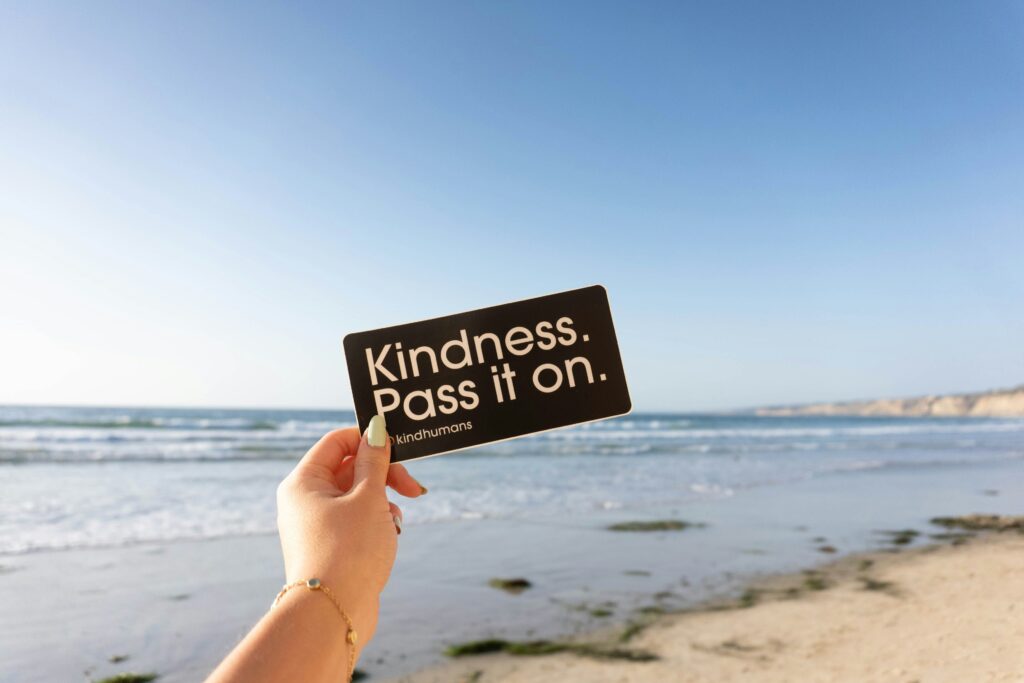Dr. Michael R. MacDonald
Would you like to be admired and respected?
Do you want to be someone who is looked up to – by your family, your friends, your co-workers, your teammates and your community?
Who wouldn’t want that?
Let’s Get Some Respect
When you act kindly, here are some of the unforgetable impressions you make on others.
Trustworthy and reliable. Kindness signals that you are safe to be around and likely won’t exploit them.
Warm and approachable. People often see you as friendly, easy to talk to, and good company.
Generous. You will be seen as someone who cares about the well-being of others, not just your own.
Respected and admired. Genuine kindness is often viewed as a strength, not a weakness, especially when balanced with confidence.
Socially skilled. Kindness will help you be seen as emotionally intelligent and able to handle relationships well.
Overall, genuine kindness tends to create goodwill, strengthen relationships, and enhance your reputation. The key is balancing kindness with self-respect and authenticity so that your actions are seen as genuine rather than forced.
Kindness Works for Introverts
Sometimes, introverts have trouble in social situations. Some may feel drained rather than energized by too much interaction. Large groups, fast-paced conversations, and environments with lots of stimuli can be overwhelming.
Introverts tend to process information deeply and may need more time to think before responding. This can make them feel pressured or out of sync in lively discussions. Additionally, introverts often prefer meaningful one-on-one conversations over small talk, so casual or superficial interactions can feel awkward or unfulfilling.
Here are five examples of how to use kindness as an introvert.
Thoughtful Listening. Introverts often excel at listening. By offering full attention, asking gentle follow-up questions, and showing genuine interest, you can demonstrate kindness in a way that makes others feel valued.
This builds strong bonds without requiring you to dominate conversations.
Small Gestures of Support. Introverts may not enjoy large social displays. Small acts—like sending a kind text to check in, or remembering someone’s favourite coffee order—can go a long way in building trust and connection.
Written Kindness. Since many introverts are comfortable expressing themselves in writing, sending thoughtful notes, emails, or messages can be a powerful way to show appreciation or encouragement.
These gestures feel personal and often mean even more than words said in passing.
Creating Space for Others. In group discussions, introverts can show kindness by giving quieter individuals the chance to speak. You could say things like, “I’d love to hear your thoughts on this.”
This both eases pressure on you and demonstrates respect for others.
Remembering Details. Introverts often pay attention to small details others might overlook. You may recall someone’s birthday, a recent challenge they mentioned, or a hobby they love, and then ask about it later. This shows kindness through thoughtfulness.
Such small gestures can make social interactions more meaningful without requiring constant energy.
Kindness for Everyone
Kindness in these forms may appear small, but each act demonstrates emotional intelligence and social awareness. As a social skill, it not only benefits the receiver but also builds lasting connections for the giver.
In a world that often prizes competition and division, kindness stands out as both rare and impactful. As a social skill, it enriches our personal and professional lives and makes us agents of connection and harmony in the broader community.
And who doesn’t want to live in a kinder world.

Until next time, let our warm hearts soar!
Michael
michael@aWarmHeart.ca
And thank you for caring that little bit extra – it really makes a big difference.

